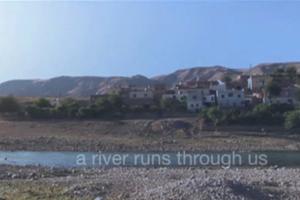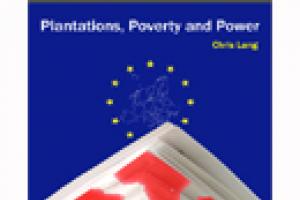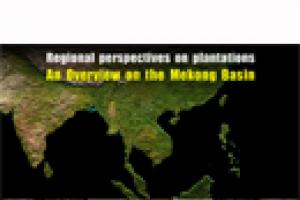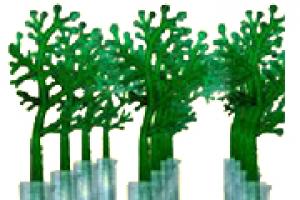Indonesia: Since April 2005, two companies involved in the building of a mega-dam in Indonesia, both owned by the a former Vice President of Indonesia, have been compulsory purchasing land from people around the Sulewana river in Poso, Central Sulawesi to make way for the construction and the displacement it will cause.
The project, known as, Poso II will affect the lives of up to 2,000 people. Residents of Peura Village are attacked by police officers as they try to prevent construction access.
Thailand
Other information
30 March 2010
The lush green rice paddies, vegetable fields, forested mountains and quiet villages in the Wangsaphung district of the Loei province of North-Eastern Thailand could be an oasis of rural tranquility, with clean air to breathe, fresh vegetables and fruit to eat and spring water to drink.
Bulletin articles
30 December 2009
Hydropower is often portrayed as “clean” or “green” energy and as part of the solution for preventing fossil fuel-related climate change. However, government-sponsored and corporate-promoted hydropower implies building huge dams that result in environmental destruction and widespread violation of human rights, ranging from loss of livelihoods to forced evictions and related cases of repression.
Bulletin articles
29 June 2009
PRESS RELEASE. In a bold outpouring of public concern for Southeast Asia’s Mekong River, more than 15,000 people from within the six-country Mekong region and around the world have signed a “Save the Mekong” petition urging governments to abandon plans for hydropower development along the river’s mainstream. The petition – written in seven languages - will be hand-delivered to Thailand’s Prime Minister H.E.
Bulletin articles
29 April 2009
The Mekong River is one of the world’s major rivers and flows along 4,350 km (2,703 miles) draining an area of 795,000 km2. (1) As Aviva Imhof from IRN beautifully describes it, “the Mekong River is a changing kaleidoscope of cultures, geography and plant and animal life. From a small trickle in Tibet, the river quickly gathers steam and carves magnificent gorges through Yunnan Province of China.
Other information
30 January 2009
Before the current global economic meltdown, the pulp industry had ambitious expansion plans. Although the industry was closing mills in the North, it was expanding dramatically in the South where about five million tons of new capacity was due to start up each year for the next five years. Vast areas of monoculture tree plantations have been established to feed raw material to huge new megamills, particularly in Latin America, southeast Asia and South Africa.
Publications
18 December 2008
By Chris Lang
Publications
15 December 2008
Eucalyptus, oil palm, rubber and jatropha monoculture plantations are expanding onto local communities’ lands and forests in the Mekong region’s countries. Promoted under the guise of development, poverty alleviation and even climate change mitigation, such plantations are resulting in severe social and environmental impacts.
Bulletin articles
15 December 2008
The inter-meshing of the six economies in the Mekong Basin since the 1990s has been fostered under the Greater Mekong Sub-region economic cooperation programme. This was aimed at increasing the flow of cross-border investment from countries with considerable economic might such as China, Thailand and Vietnam into neighbouring countries such as Laos PDR and Cambodia, which have a ‘doors wide open’ approach calling for foreign companies to come to invest.
Other information
15 December 2008
Rubber is one part of life of the people of the South, related both to the culture and economy of the last 108 years. The monoculture production system has replaced a traditional system of rubber forests, where rubber used to be grown in amongst fruit orchards and natural forests known as a suan somrom or “integrated garden”. Rubber plantations have been promoted through the government’s Welfare Fund for Rubber Plantations.
Other information
15 December 2008
Thailand is making big plans, in particular for the next ten years, to boost agrofuel production particularly through expansion of oil palm plantations. However, the plans are not going anywhere yet due to the price volatility of agrofuel feedstock like palm oil and sugar as well as growing environmental concerns.
Thailand has two types of agrofuels: gasohol (mixture of gasoline and ethanol) and biodiesel. Gasohol made by mixing gasoline with 10% ethanol is called E10 (Gonsalves 2006).
Other information
18 August 2008
WRM information sheets on GE tree research
First posted: 18 August 2008
Last update: August 2014
Forest tree species being manipulated:
rubber tree (1)
Aim of genetic manipulation




